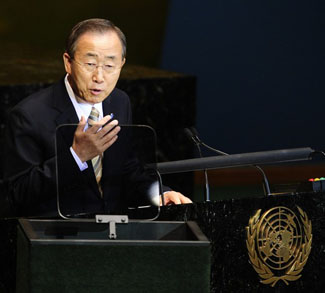To understand economics, we need to lift our heads above the daily news shows. Periods of economic decline take on different forms and are described by different terms depending on the severity. What we are witnessing now in the US is not just another recession or even economic collapse, but a hegemonic transition or in the worst-case collapse, that is, a powerful state about to lose control as we saw with the disordered withdrawal from Kabul this week.
A recession is a period of economic decline in two successive quarters. An economic collapse can last several years, as in the great depression of the 1930s but also the current COVID-19 pandemic. An economic collapse can lead to a social collapse when cultural identity breaks down, governments fall, and violence surges in the streets. A hegemon is a state that has predominance or control over all other states. During the past half-millennium Portugal, Spain, the Netherlands, France, and Britain were all at one time hegemons.
England went through a hegemonic transition in 1919 but avoided a societal collapse. As repeated occurrences of street violence, conflicts between racial groups, and the storming of the US capital showed, the US is far closer to balancing on the verge of societal collapse, suggesting hegemonic collapse.
Trump was elected because it was thought he would fight the elites. It was a populist revolt sparked by a growing middle class who have seen their living standard deteriorate over two generations. The height of the American dream was in the 50s. Since then peoples’ living standards have largely been debt-financed. The US has experienced close to 50 periods of recessions since the early 19th century and a handful of economic collapses like the 1815–21 depression, the Panic of 1873, and the Great Depression. What we are seeing now is different. A new hegemon is waiting in the corridors, just like the US did at the turn of the 20th century. The US external debt is not only the largest in the world but more importantly, it is now unpayable. And as all creditors know what cannot be paid will not be paid. To stay afloat as an economy the US has printed 40% of all dollars in existence during the past 12 months. And it is not only the economy and those whose work it is to see that it is functioning that is not delivering, but also other institutions, like the military. The US now lost another war, officially this week, withdrawing from Afghanistan while the victor, the Taliban, is already in control of most of the country, even though few experts and none of the mainstream commentators thought it possible even a week ago. The Chinese are waiting in the corridors in Afghanistan too, ready to make deals to get access to the country’s rich minerals, mainly copper, iron, and rare earth elements. Before that US troops left Iraq, preferring the term “withdrawal” themselves, but clear to much of the rest that it was a defeat. All of this signals not only a hegemonic shift but leadership in denial and out of touch with reality or so entangled in its own decline that every event must be taken as a PR opportunity.
The Chinese do not need Afghanistan as their Belt and Road Initiative – the largest infrastructure in the history of mankind – works itself around the country, in the north-west through Turkmenistan and in the southeast through Pakistan, so the Chinese have a strong negotiating position vis-a-vis the Taliban. To show Iraq that they are part of the country’s solution they buy about half of their oil even though they do not need to. Wherever the US fails China comes in and fills the void.
In little more than a century, we have gone from Pax Britannica to Pax Americana and now we see the beginning of Pax Sina. It is only about 100 years since the British pound collapsed as a world currency. The US surpassed Britain in 1919 as Britain was forced to leave the gold standard to finance its part in the First World War. The US economy had surpassed the British a few years earlier, in 1913. In comparison, China may surpass the American economy in a few years, maybe by 2028. New incumbents are always quick to take action. At the end of the Second World War America brought the victors to sign an agreement to tie their currency to the USD and to tie the USD to gold (Bretton Woods). With these signatures, US hegemony was confirmed. It was now a question of seeing how long the position could be held, drawing the parallel to Rome and Pax Romana as a yardstick of great civilizations. In hindsight now looking back at not only the economic performance of the past two generations but also to numerous disastrous military adventures around the world, the much shorter Vandal hegemony may seem like a more accurate comparison. The Bay of Pigs, the bombing of Cambodia, and the systematic support of dictators in South America do not wash away so easily.
Just like for the British, US hegemonic power only lasted until the next war, in Vietnam, as Nixon was forced to take the USD off the gold standard in 1971. Since then the world has had a broken economic system as the US exploited its fiat status to issue ever more debt while clamping down on other debtor country’s fiscal control. Thus, the moral high ground was pretty much lost from early on. That the USD was still able to dominate the economy of other countries for more than two generations was due to the quick spread of the USD. Today, still, 61% of all foreign bank reserves are in USD and 40% of all the world’s debt. This is only changing slowly for the time being and is part of the transitionary process.
Britain did not collapse completely, nor will the US if they can find other sources of income, but the parallel between the two countries’ reigns is striking. In the 1950’s Britain was still an industrial giant, but by the early 80’s after a disastrous time dominated by neoclassic economics which culminated with Margaret Thatcher as head of government most of it was gone. The last jewels like Jaguar, Rover, Rolls-Royce, and Bentley were part of the great sell-off in the ’90s and early 2000s. Desperate for alternative sources of income after the decline of the empire Britain allowed the City, a private entity with special jurisdiction in London, to take the lead. The City developed two schemes for wealth creation both based on the personal connection the country had developed with its former colonies. One was to assist new generations of leaders in these countries to transfer stolen funds out of the country. This became a major reason why Africa never experiences any real economic development. The second was to develop tax havens in other former colonies as a hiding place for dirty money and for people who wanted to avoid paying taxes, starting with the Cayman Islands. This system is well described in Tom Curtis’ book “Kletopia.” Today the tax avoidance scheme is so large that some estimates are that half of all deposits in the UK are placed in tax havens. That means that half of England’s potential taxable income is gone. Instead, the middle class is left to pay for an ever larger and more expensive social welfare state. The good news is that the tax havens can easily be shut down through a vote in the parliament. The bad news is that those who benefit from this scheme are overrepresented in parliament and will not vote against their economic interest. Instead, the public is served complicated and diffuse legal excuses.
American banks quickly drew advantage of the English scheme establishing offices in the City, but have also built their own system of setting up company headquarters in states with no or low corporate tax, states like Nevada, Delaware, Montana, South Dakota, Wyoming, and New York. As a result, there is a competition between states now that is leading to greater inequality and tensions between states which is already damaging the sense of unity which has made the country strong and prosperous. Just like England, the US has gone through a period of deindustrialization whereby jobs and investments have moved overseas. What was portrayed in business schools as “globalization” was in large part an economic suicide in the making whereby owners of companies defrauded their workers of their livelihood. I taught myself one of those courses (“international business”) for a few years at Copenhagen Business School more than two decades ago without reflecting much about the consequences of these theories. As a result of “globalization,” the majority of the jobs created in the US today are low-skilled jobs in warehouses and logistics, like at Amazon, jobs soon to be replaced by robots. The skilled craftsman jobs that were associated with an affluent middle class have to a large extent disappeared.
Both England and the US fell prey to the same homegrown political and economic ideas, the conviction that individualist ideas would lead to a prosperous society for all. This is a uniquely Anglo-Saxon idea in the history of hegemonies and one that is unlikely to be tried again soon. What started as moderate and sensible individualism with Adam Smith and John Stuart Mill, develop into ideas of excessive self-interest with Hayek, the Chicago school, and Ayn Rand. Nowhere were these ideas more spread than in the new financial elite, led by Alan Greenspan as head of the Federal Reserve. In its later stage, it was more like a cult than an ideology. The state or “commons” was seen as an enemy supported by “evil communists” associated with the USSR and China under Mao. This ideology quickly hijacked not only the entire study of economics but society at large making it unable to think rationally about large common projects, like infrastructure.
In the US it started to go seriously wrong in the 70s and 80s when “growth” was largely built on borrowed money. Focus shifted from industrial production to financial services under the disguise that “clean” services were more important than “dirty” production. A greedy elite simply could not make money fast enough and Wall Street was always willing to scam their fellow citizens, massively, again and again. Jerome Powell today is simply the latest priest of this casino-like pyramid scheme whose institution is about to go bankrupt, forced to print ever more money simply to survive the next week. Stock prices especially for US companies have since long stopped to reflect any real economic performance in the underlying assets. It’s all about pumping money into the stock market to prevent the markets from crashing. If they do not the baby boom generation who are in control of most of the assets will lose their pensions. The companies and CEOs play along, buying their own assets instead of investing in new production. There is little Powell himself can do except to try to prevent panic by spreading empty assurances of stability and growth dressed up in vague neoclassic jargon which commentators try to “interpret.” The news commentators themselves are lost, unable to ask critical questions, swinging back from restrained hopelessness to careful optimism. When they interview people who make their living investing in gold they swing towards gold, or when they argue for Bitcoin the person interviewed has invested in Bitcoin. More often now they also advise their viewers to keep cash much like the passengers on the Titanic were advised to go slowly towards the lifeboats. Cash held in USD will not solve the problem either as the USD system is at the heart of the problem. It’s systemic risk, there are no portfolio strategies that make sense with US equity or currency at this point, all will go down and this will in turn seriously affect foreign markets around the world. This also explains the absurd popularity of Bitcoin as an alternative investment. Bitcoin is backed by absolutely nothing, but at least it’s not the other stuff, or so the thinking goes. Holding Bitcoin may be a momentary rescue, but it is not likely to be around for long (of reasons we have to come back to in a separate article).
Loss of hegemonic control is natural throughout history. Portugal was surpassed by Spain, as Spain was surpassed by France, as France was surpassed by the Netherlands, as the Netherlands was surpassed by England. The only question seems to be how long a nation can hold on to power and how deep it will fall. Nations surpass each other by gaining a competitive advantage. To be a hegemon often comes down to a few variables, like the size of the population, the amount of natural resources available, the educational level, and an outward-looking mind. Competitive nations follow the SEPT process: With an interest in Science, you can build a good Educational system that can be used for increased production of goods and services which can be Traded with other nations for profit, which can be reinvested in Science. Thus, nation-states and their citizens become prosperous. Mainstream economists often call this mercantilism or neomercantilism, but that is only one part of the equation. A more inclusive term is geoeconomics. Sending gunboats was a successful strategy for England and the British empire, but only because they knew how to draw economic profits from it. The US never succeeded in copying the English geopolitical strategy. Instead, military investments became an economic burden.
The Netherlands never had enough natural resources to stay on top for long, nor a sufficient population size. Japan had the population, the science, but not the willingness to go abroad and learn about other cultures so it could not secure the natural resources it needed. Germany could have been the economic hegemon in the 20th century but got mixed up in two world wars which it lost. Sweden tried to be a European hegemon, desperately, but was never close to having a real chance. Now China has all the advantages needed for succeeding the US as a hegemon; the population, natural resources, the educational level, and a keen outward-looking mind, engaging with all nations also in places we have refused to go to, like in Africa. It even has the experience of having been a hegemon and the Confucian theories to make sure it does not go off track.
What happened to the US? After all, it still has the population, the natural resources, and to a large extent also an outward-looking mind, even though a bit rusty in geography and history. It still has most of the world’s best universities and a hard-working population. Well, like England it was persuaded by its own elites to sell out its production and with low domestic production, there was not only a lack of trade but also good jobs for the middle class. To compensate for the lack of trade the elites, who were now mostly in finance, suggested that everyone borrow for their consumption as this policy created new lucrative opportunities for themselves. That was the big betrayal. As they financed both political parties there was never an issue of persuasion. Political support was guaranteed. All of this was defended with economic ideologies as the neo-classics argued that money and debt were irrelevant for their models. The unspoken assumption was that all this was possible as the US owns and controls the world financial system. As other nations depend on the USD the US did not have to follow the same laws that it insists that other debtor nations follow. This was assured through their control of the World Bank, IMF, and a large, impressive military presence around the world. The free lunch was possible.
England declined with the loss of its empire. It simply wasn’t possible to suppress other nations with machine guns anymore. It was brought on its knees by its own elites who distanced itself from the rest of the population and dismantled and sold out its production capabilities. After that, it survived mainly as a financial center hiding the ill-begotten gains of criminals from all over the world and the fortunes of the wealthy classes. The US is declining because it outsourced production and built a strategy of growth on debt finance, a result of its own greed one could say. In the current phase of this economic system, there is no more money to be borrowed as interest rates are zero and bonds give no reasonable rate of return (below inflation). Instead, the country has been forced to print ever more USD simply to stop the stock markets from crashing. If it takes a bit longer than what many expect it’s because the USD system is so much larger. In the meanwhile, China is building parallel systems and organizations to help nations move away from US dependence, both economically and politically.
We do not know how long this hegemonic transition will take, but most indicators suggest we are at a later stage. A substantial fall in the value of the USD is possible in which case we are looking at a hegemonic collapse as opposed to a transition. Will this also lead to a societal collapse? Well, much depend on what the US will do in the coming months and years. We see that competition between states in the US is cutthroat, not only over taxes but also when competing for plants and headquarters of larger companies and highly skilled personnel. Racial and class conflicts have been increasing. In a generation, white-Caucasians will no longer be in majority. One likely scenario is that the country will look more like Mexico in a generation from now ethnically, politically, and economically, with isolated pockets of high production like we see developing in Texas today.
I enjoy living in a country with free speech, but a democratic system is not a requirement to succeed as a hegemon, like we in the West like to think. What people want is first of all a higher standard of living. Democracies can instead be vulnerable in times of economic decline. We saw this in Europe in the 20s and 30s with the rise of fascism and Nazism. We already see signs of this today in the form of populism, both in the US and Europe. Democracies always risk being ruled by the “vulguaris,” as we saw in Rome after the end of the Republic or as we have seen it in the US under Trump. This then seems to be the major weakness of democracies, they function best in times of prosperity.
How do we get out of this mess? Well, that demands another article but suffices it to say here that control of money must be separated from private interests. We need a new discipline of economics to start with, a more realistic study, to teach people what is happening. (To give a simple example, at school I was taught that money was printed by the government. I later found out that it was mostly created by loans made in private banks). Then we need a new international financial system, a new Bretton Woods. This will probably center around the implementation of Central Bank Digital Currencies (CBDC) where the state once again takes control of money creation. Private banks can play a minor role in the distribution of this money (but not necessarily) and in taking risks on loans, for which they must be compensated. In countries where the central bank is private like in England with the Bank of England and in the US with the Federal Reserve, this will take more effort in convincing their own elites. Instead, the seeds of a new Bretton Woods which must be the basis of a new hegemony are more likely to come from China and it will be based on geoeconomics, not geopolitics.
The views expressed in this article are those of the authors alone and do not necessarily reflect those of Geopoliticalmonitor.com




